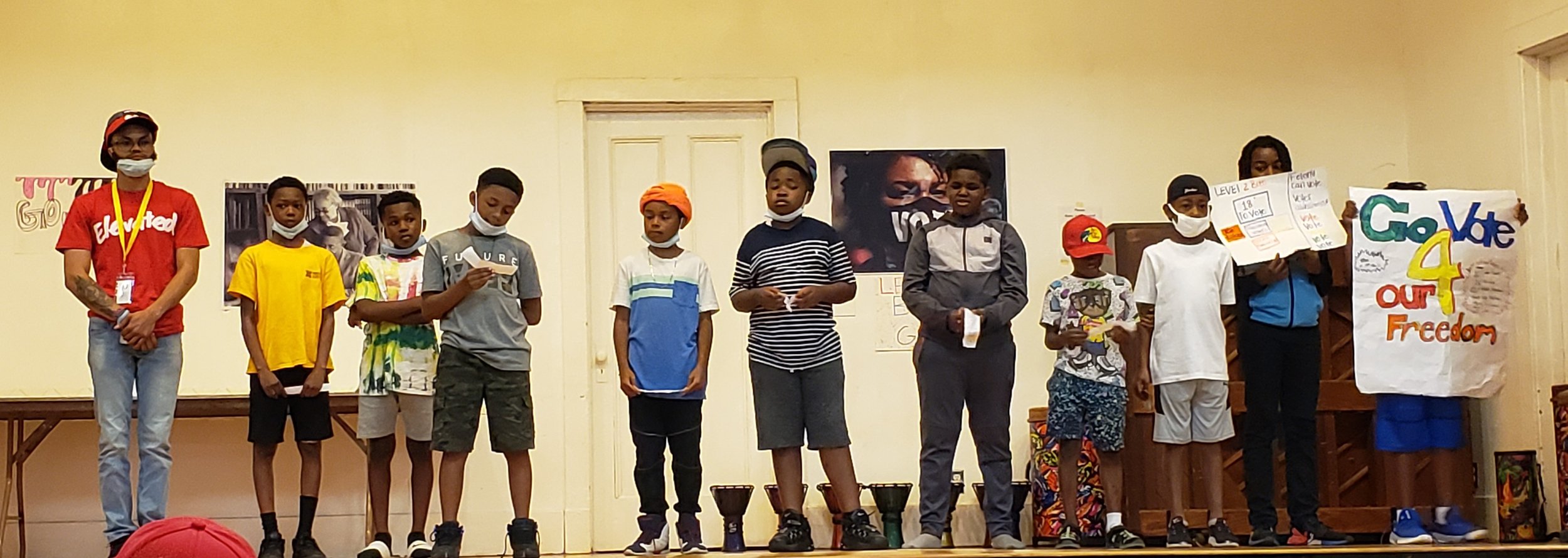Mission
At the FSLC, we work alongside children and families from communities under systemic pressures to:
Build on and secure academic, social, cultural, economic and environmental literacies & legacies;
Challenge societal oppression and support pathways for school and life success;
Become part of the resistance and change
Vision
Creating a transformational learning space with our communities’ children, youth and families where our collective strengths are recognized, cultures honored, and capacities to make a difference in our neighborhoods and our futures are cultivated and inspired.
History
In 2007, a CDF Freedom School Summer Literacy Enrichment Program opened in Rochester’s Beechwood neighborhood. This was part of a nation-wide effort to empower children in marginalized communities to make a difference in themselves, their families, communities, country and world with hope, education and action. Since then Freedom School has offered a place where our neighborhood children are valued, celebrated and given opportunities to improve their reading skills while connecting to their culture, developing self-discipline, having fun, and participating in community service and social action. It has been a recipe that brings families back, summer after summer, and strengthens the confidence and progress of hundreds of children in an otherwise disenfranchised community.
In the summer of 2020, the disruptions of COVID-19 and the challenges of local non-profits became significant threats to the future of the Freedom School. In late summer a group of Freedom School servant leaders, teachers, program administrators and community members came together, determined to overcome these challenges and constraints.
Freedom Scholars Learning Center
With so much at stake, the leadership planning team decided to embark on forming a new organization: The Freedom Scholars Learning Center (FSLC). The new center is completely independent and builds on the strong foundation of the group’s collective Freedom School experiences, developed through years serving the families and youth in our neighborhoods.
Our Building Blocks
-
An integrated reading curriculum that uses culturally relevant literature and engages parents and community members in literacy activities such as book groups, poetry readings, music and literacy presentations.
-
Activities that promote self-concept including demonstration of Heritage Knowledge, teaching cultural precepts through programming, and providing examples of cultural excellence from diverse disciplines.
-
Teach and model the intergenerational responsibility of mentoring to youth teacher/leaders who practice these skills with scholars.
-
Guide scholars in civic engagement projects and social action skills.
-
Work with families on effective navigation of the social system, as well as identifying and setting long term individual goals, fostering the idea that we can all make a difference.
Values
-
The inner workings of our learning program allow for a sense of genuineness and connection among the scholars, mentors, family, and staff, reflecting the diversity and complexity of the community. Those connections allow sincerity to build, and help create a system of trust.
-
We follow the principle of armed love, meaning the emotional security and encouragement of the child’s well being. Making the child the focus emphasizes the importance of child development.
-
We offer a place for the child to develop without bias or criticism. We are aware and mindful of the differences that make a child unique. Putting aside our differences to allow and accept the differences of others in order to work more in a cohesive manner. Therefore we practice non-judgmental awareness and cultural responsiveness.
-
We practice working together in a collaborative effort to strengthen the educational process. We create an environment where cooperation and teamwork are valued over competition. We practice collaborative skills such as listening, mindfulness, and cultural awareness to successfully work together.
-
The social, economic, and cultural literacies we teach are based on research and reflect the values of our scholars and families. This helps the scholars identify themselves culturally and obtain critical reasoning skills and experience.


